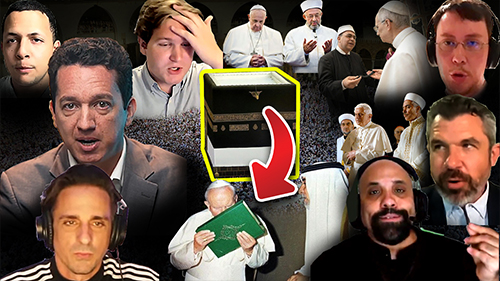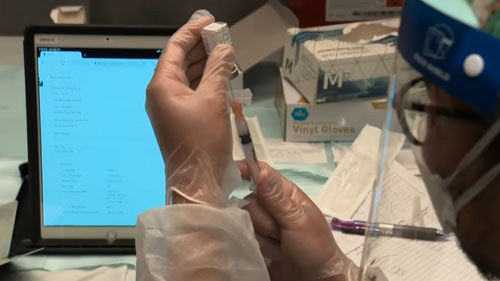| Recent Featured Videos and Articles | Eastern “Orthodoxy” Refuted | How To Avoid Sin | The Antichrist Identified! | What Fake Christians Get Wrong About Ephesians | Why So Many Can't Believe | “Magicians” Prove A Spiritual World Exists | Amazing Evidence For God | News Links |
| Vatican II “Catholic” Church Exposed | Steps To Convert | Outside The Church There Is No Salvation | E-Exchanges | The Holy Rosary | Padre Pio | Traditional Catholic Issues And Groups | Help Save Souls: Donate |  |









 " />
" /> " />
" /> " />
" /> " />
" /> " />
" />




All True Justice and the Causes of Justification
ALL TRUE JUSTICE MEETS UP WITH THE SACRAMENTS (de fide)
In the Foreword to Sess. 7 of the Council of Trent’s Decree on the Sacraments there is a very important statement.
The Council of Trent here defines that all true justice (sanctifying grace) either begins or is increased or is restored at the sacraments. I repeat, all true justice either begins or is increased or is restored at the sacraments. This means that all true justice must be at least one of the three: begun at the sacraments, increased at the sacraments or restored at the sacraments. But the baptism of desire theory is that some persons can have a true justice (sanctifying grace) that is none of the above three! They argue that some persons can have true justice that is: 1) not begun at the sacraments, but before; and also 2) not increased at the sacraments (since the person dies before getting to the sacraments); and 3) not restored at the sacraments (for the same reason as # 2). Thus, the “baptism of desire” theory posits a true justice which is neither begun nor increased nor restored at the sacraments. But such an idea is contrary to the above teaching of Trent, and therefore such a “true justice” which they posit cannot be true justice. This shows again that baptism of desire is not a true teaching, but a false teaching littered with contradictions against infallible truths such as that above.
THE INSTRUMENTAL AND EFFICIENT CAUSES OF JUSTIFICATION
We have seen how the Council of Trent defines that the Sacrament of Baptism is necessary for salvation. We have seen how, in every single instance (that is, four), the Council of Trent infallibly declares that John 3:5 applies literally and to every man. We have seen how even the passage that baptism of desire advocates mistakenly think favors their position (Sess. 6, Chap. 4), actually excludes baptism of desire by declaring that John 3:5 is to be understood as it is written. I will now briefly discuss two other points in this venerable Council.
In Sess. 6, Chap. 7, the Council of Trent defines what the causes of Justification are in the impious. Justification is the term for the state of sanctifying grace. If desire or blood were a cause for Justification, as the baptism of desire advocates argue, then you would think that they would be mentioned in the chapter on the Causes of Justification, wouldn’t you? Why isn’t either mentioned in Chapter 7 on the causes of Justification?
What we do find mentioned is that the Sacrament of Baptism is the instrumental cause of Justification.
In this Chapter, the Council of Trent listed in all 5 causes of Justification, four of which are God or the attributes of God, and one of which (the instrument of that Justice) is the Sacrament of Baptism.
If there were exceptions to the truth that the Sacrament of Baptism is the cause of Justification in the impious, as the baptism of desire advocates claim, then the exceptions would have been included by the council, just like the council specifically declared in its decree on Original Sin that Mary was not included in its definition on Original Sin.
The Virgin Mary is also excluded in Sess. 6 of Trent by the context, because the entire decree in Sess. 6 deals with the Justification of the impious/sinner. The context of the “impious,” therefore, does not include Mary since she was never impious – she was always in a state of perfect sanctification. But the point is that the council needed to specify that Mary was not included in its definition on Original Sin in Sess. 5 and it did so, thus demonstrating that if there are any exceptions to a dogmatic statement they will always be mentioned in the decree; for an infallible statement cannot declare that which is false.
Furthermore, look at what the Council of Trent says about the efficient cause of Justification in the impious.
This is very interesting. Trent defines here that the efficient cause of Justification in the impious is God who washes and sanctifies, signing and anointing. Notice the term signing. This term (signing) is a clear reference to the character or mark of the Sacrament of Baptism; for the “sign” of Baptism only comes with the Sacrament of Baptism, as everyone admits. I quote Fr. Laisney of the SSPX again.
Therefore, if Trent defines that the efficient cause of Justification is God who signs, this means that the efficient cause of Justification is God who signs us in the Sacrament of Baptism. And one cannot have the effect (Justification) without the cause (God signing in the Sacrament of Baptism).
Endnotes:
[1] Denzinger 843a.
[2] The Sunday Sermons of the Great Fathers, Vol. 4, p. 8.
[3] Denzinger 799.
[4] Denzinger 792.
[5] Denzinger 799.
Sign up for our free e-mail list to see future vaticancatholic.com videos and articles.
Recent Content
^